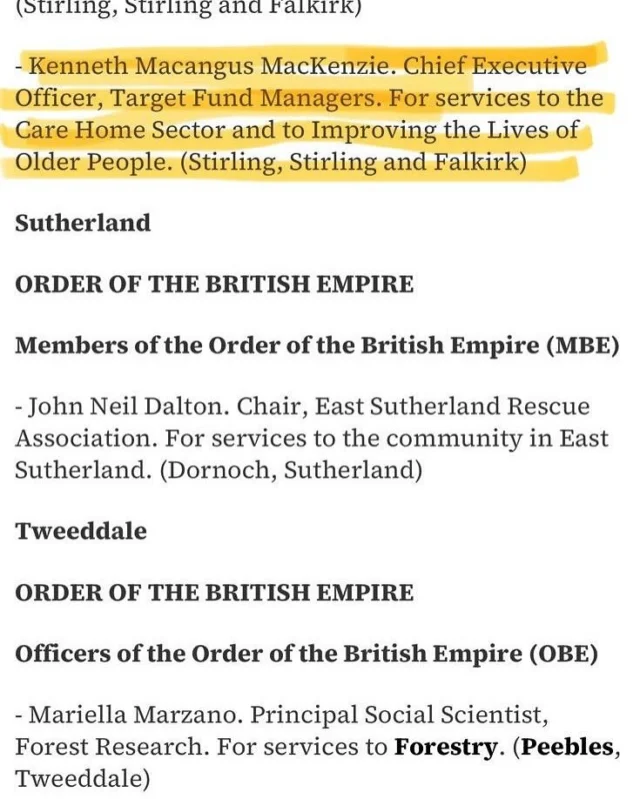From funerals to popular songs, these great poetic stanzas from Ecclesiastes 3, are amongst the most well-known words from the ancient world today. They are striking, but often misunderstood words, which are worth reading again.
3 There is a time for everything,
and a season for every activity under the heavens:
2 a time to be born and a time to die,
a time to plant and a time to uproot,
3 a time to kill and a time to heal,
a time to tear down and a time to build,
4 a time to weep and a time to laugh,
a time to mourn and a time to dance,
5 a time to scatter stones and a time to gather them,
a time to embrace and a time to refrain from embracing,
6 a time to search and a time to give up,
a time to keep and a time to throw away,
7 a time to tear and a time to mend,
a time to be silent and a time to speak,
8 a time to love and a time to hate,
a time for war and a time for peace
These words are found in the great book of Ecclesiastes – which is such a powerfully relevant word for our time. Just as there are five books of Moses in the Old Testament, so there are five books of wisdom there. Proverbs seems especially relevant for the young, Job speaks to the suffering, the Psalms give voice to our emotions, Song of Songs is about marriage, and here- Ecclesiastes is especially relevant to adults – forming a symmetry with Proverbs. Wisdom from God, is what we need in order to both understand life adequately, and to make good decisions here on earth. Wise people are also a great blessing to others. Solomon invested a lot of time judging the disputes of others, and bringing justice and reconciliation – because his wisdom was respected by all. So let’s dig into these well-known words.
What these great words do not mean!
- The first thing we need to note is that these words do not imply a kind of fatalism. When we read words such as “there is a time to be born and a time to die”, (etc etc) some people react by saying things such as “if everything is predetermined, then why bother with anything?” – that’s called fatalism. Interestingly, the Bible holds a high-view of the sovereignty of God; over history, salvation, providence and the future; but never, ever commends fatalism. I have known some Muslim friends who have applied their understanding of divine sovereignty to mean that there is no point wearing a seatbelt in a car, for example; because it makes no difference, Inshallah – they say! Whatever God wills.
The Bible’s emphasis is notably different to that more fatalistic approach. Rather than saying, ‘God is sovereign, so resign from all responsibility for your life’; the Bible says, ‘God is sovereign and can enable you to make wise decisions in His world!’. Likewise, in the New Testament, when the Apostle Paul talks about the power of God, he says, “I can do all things through Christ who gives me strength”. Amazingly, the absolute sovereignty of God, is seen as compatible with human responsibility. When you read, there is a time for…….. (all the seasons of life listed in v1-8), if your reaction is a resigned sigh of hopelessness; then that is an unbiblical response. If however, when you read this you pray, “Lord, time is not in my control – but yours. Help me use the time you have given me today to live well in this world, in a way that pleases you and blesses others”; then you have grasped something of what Ecclesiastes is about; and avoided the error of fatalism.
Perhaps there is a good parallel with evangelism here. I once met a missionary who worked in a quite dangerous part of one of our great cities. He believed passionately in the sovereignty of God, but everyday went into this part of the city to try and reach people with the gospel. Someone once said to him, “if you believe God is sovereign, why do you bother doing evangelism”. He replied, “If I didn’t believe that, I wouldn’t dare do evangelism! But God’s sovereignty empowers me to go there, believing that He will call people to Himself through his word!” In the same way, God’s sovereignty over time shouldn’t make you sign, shrug, or give-up with a resigned fatalism; but you should receive each day as a gift from God, and live it to the full for Him!
- Reincarnation is another way in which these words have been misread, which we must address. In Eastern-thought, time is considered to by cyclical, in which the created order has no fixed beginning or end. As such, they say, death leads to endless rebirth as the circle of life continues. Some have looked to these verses to justify such a belief. That is a serious mistake to make though. The Bible is clear, we live one earthly life, then face the definitive judgement of God. We do not get endless lives in which we can correct the sins of previous lives, pay back what we owe, or move up the spiritual ladder until we reach perfection. Hebrews is blunt on this matter: “Man is appointed once to die, and after that the judgement”.
The cycles and seasons spoken of within these verses are here, on earth in our lives. The seasons and the water-cycle do indeed go round and round – with remarkable regularity. There are patterns and design in this universe. So to do our emotions which often go round and round – through all kinds of seasons. However, that does mean that we should for one moment embrace the idea of reincarnation. When Eastern religions became trendy in the 1960s through to any number of New Age belief-systems and groups today; the ideas of reincarnation have been popularized in the West. As a result, these words sometimes are read through the wrong lens. The Biblical lens is sharp, and focused though and it tells us this. Time, in the created order before God, has a definite start when God created it. It also will have a definite end point, when God brings this world to its conclusion. In that sense, time is linear – and we are on a definite journey through it, under the sovereign hand of God.
It also means that we must get right with God now. This year in Scotland, some of my friends’ kids had their exams cancelled because of the Covid crisis. Their results were then based on the practice exam they did back in February. Back then, they thought they were doing a trial-run, and had another chance to get it right; but it turned out to the be the real thing! Some of us live as though this life was a trial-run, and that we have limitless opportunities to get things right in the future. Older people say “Life isn’t a dress-rehearsal, you know!” – and younger people say “YOLO” (that’s You Only Live Once by the way!) and they are both right. So, make sure above all else that your sins are forgiven, that you are in Christ, and that you are at peace with Almighty God.
What these great words do mean
- God rules over all the seasons of life
The literary technique deployed here repeatedly is an inclusio. That is when the writer states two extremes, they are like an opening and closing bracket including everything in between. The writer says that there is a time to dance and a time to mourn, for example. He states the extremes of life, to indicate that God is Lord over those – and by extension all the varying moods in between.
- God and Time
In the Septuagint, the early Latin translation of the Old Testament, they used two words for “time”, Kronos and Kairos. Kronos refers to the passage of time, and is what can be measured on a sundial, a watch or a calendar. Kairos, on the other hand refers to an appointed time, a special moment given by God of particular significance. God is sovereign over both Kronos and Kairos. He created time, and will bring it to a conclusion. Jesus said “Before Abraham was, I Am!” – He is Lord of kronos. And The Lord also creates Kairos – special appointed times when things must happen. Esther was brought into a place of great influence “for such a time as this” (5:17). Likewise, Jesus was brought into the world as a specific God appointed time: Galatians 4 4 But when the set time had fully come, God sent his Son, born of a woman, born under the law, 5 to redeem those under the law, that we might receive adoption to sonship.[b] “ In the same way, we must listen very carefully for moments when God speaks to us, when He calls us to repent, to draw close to Him, or to follow His voice when He calls us into new areas of service.
- Be wise in how you use the time you have.
Please consider just two scriptures:
- 1 Cor 6:2 says, “now is the time of God’s favor, now is the day of salvation”.
As we have seen, the Bible insists that there is no reincarnation, and no further opportunity to make peace with God and inherit eternal life – once we have died. If that sounds negative, then you need to balance that with this positive! Now IS the day of salvation. That means, The Lord is calling you to put your trust in Him now! His grace will not reach you once you are dead, but it is available to you today. Never put off making the decision to trust in Jesus and turn from your sin and follow Him. Never assume that you’ll have another opportunity. Turn to Him and live. Now!
- Ps 31:15 says, “My times are in your hands”
How you respond to this verse depends on how you view God. When the Psalmist says that all his life is in God’s hands, you will either be thrilled or threatened by that truth. If you know, love and trust God as your dear kind heavenly Father, then being held in his will and purposes will fill you with immense joy and enthusiasm for life. If however, you are not at peace with God, because you are living your own way, without worshipping Him; or if you have a twisted view of God in which He is malevolent or unpredictable; this text might fill you with dismay. My prayer is that you will draw close to God through Christ, That He will fill you with His Holy Spirit and show you that He is good – and can be joyfully trusted with all of your life.
A Final Word:
We will develop these concluding themes in the coming weeks’ studies. However, as we draw this study to a close, please remember these things. God is sovereign over time. So receive every breath, every minute of every day as a gift from Him – and live it to the full. Receive all the good gifts that God wants you to enjoy from His good hand. Every friendship, every rainbow, every sunset, symphony, praise song, painting, or day at work; give it your all and give thanks to God. Let’s not be people who live half-baked, dull lives! Let us all receive life as gift from God, and live it with gratitude and thanksgiving. We are biblical Christians, so we know we get one life; so live it! We are not fatalists, who sigh, and give up with a resigned shrug, rather we start each day saying, “Lord, you are good. Thankyou for the gift this new day. What have you got for me today?” And live it for His glory!
Amen!
Angela.







